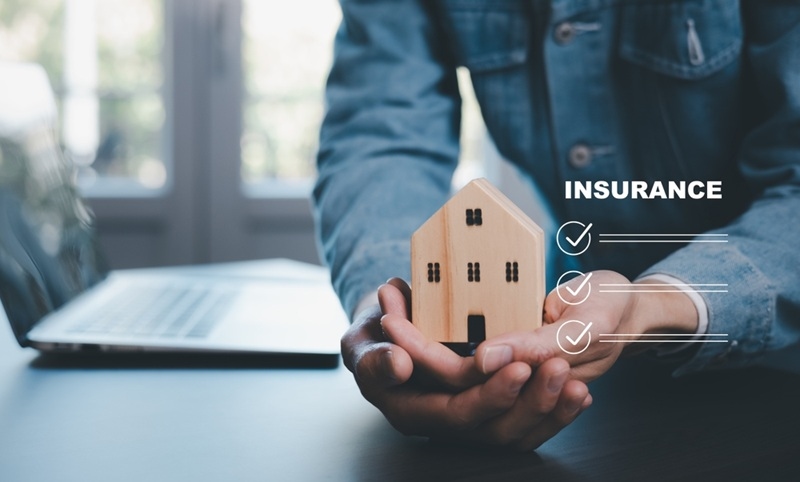Understanding Home Equity: Unlock the Value of Your Property
Understanding Home Equity: Unlock the Value of Your Property


Homeownership is one of the most significant investments many people will make in their lifetime. Beyond the comfort and security it offers, owning a home also comes with a financial benefit known as home equity. Understanding how home equity works, how to build it, and the various ways you can leverage it is crucial to making the most of this valuable asset. This blog will guide you through the essential aspects of home equity, including what it is, how it functions, and the best practices for using it to your advantage.
Defining Home Equity and Its Mechanism
Home equity represents the portion of your property that you truly own, free and clear of any mortgage debt. Essentially, it is the difference between your home's current market value and the remaining balance on your mortgage. As you pay down your mortgage, your equity in the property increases. Similarly, if the market value of your home appreciates, your equity also grows, regardless of how much you owe on the mortgage.
For example, if your home is valued at $300,000 and you owe $200,000 on your mortgage, you have $100,000 in home equity. This equity is a significant financial resource, as it can be used in various ways, from funding major expenses to securing your financial future.
Leveraging the Value of Your Home: Utilizing Home Equity
One of the primary benefits of home equity is its versatility as a financial tool. Homeowners can tap into their equity for various purposes, such as home improvements, paying off high-interest debt, financing education, or even investing in additional property. There are several ways to access your home equity, each with its advantages and risks.
A popular method is the Home Equity Line of Credit (HELOC), which functions similarly to a credit card, offering a revolving line of credit based on your equity. Another option is a Home Equity Loan, where you receive a lump sum amount based on your equity and repay it over a fixed period. Both options allow you to convert your home equity into cash, but it’s important to use these tools wisely to avoid financial pitfalls.
Measuring Your Equity: How to Determine Home Equity
Calculating your home equity is straightforward but requires accurate data. Start by determining your home’s current market value, which can be estimated through online real estate tools, a professional appraisal, or a comparative market analysis by a real estate agent. Once you have this figure, subtract the outstanding balance on your mortgage. The result is your home equity.
For instance, if your home is worth $400,000 and you owe $150,000 on your mortgage, your home equity stands at $250,000. Regularly calculating your equity is a good practice, as it helps you monitor your financial standing and plan for future financial decisions.
Strategies for Building Equity in Your Home
Building equity in your home is a long-term strategy that can enhance your financial stability and increase your wealth. One of the most effective ways to build equity is by making extra payments on your mortgage. Even small additional payments can significantly reduce the principal balance and, over time, increase your equity.
Investing in home improvements is another strategy to boost your home's value and, consequently, your equity. Projects that enhance your home's functionality, energy efficiency, or aesthetic appeal can increase its market value. Additionally, choosing a shorter mortgage term or refinancing to a lower interest rate can accelerate your equity growth.
Accessing Your Home's Value: Methods to Tap into Equity

When you're ready to access the equity you've built, it's essential to choose the right method based on your financial needs and goals. As mentioned earlier, HELOCs and Home Equity Loans are popular choices. Another option is cash-out refinancing, where you refinance your existing mortgage for more than you owe and take the difference in cash. This option can be beneficial if interest rates have dropped since you took out your original mortgage, allowing you to lower your monthly payments while accessing your equity.
However, it's crucial to consider the long-term implications of tapping into your equity. While these funds can provide immediate financial relief or investment opportunities, they also come with the responsibility of repayment. Mismanaging borrowed equity can lead to increased debt and even the risk of losing your home if you're unable to keep up with payments.
Evaluating the Pros and Cons of Borrowing Against Equity
Before deciding to borrow against your home equity, it’s important to weigh the benefits and potential risks. On the positive side, borrowing against your equity can provide access to large sums of money at relatively low interest rates compared to unsecured loans or credit cards. This can be particularly advantageous for significant expenses like home renovations, education, or consolidating high-interest debt.
However, borrowing against your equity also means increasing your overall debt, which could strain your finances if your income decreases or if property values decline. Additionally, your home is the collateral for the loan, so defaulting on payments could result in foreclosure. It's crucial to ensure that borrowing against your equity aligns with your long-term financial plans and that you have a clear repayment strategy in place.
Missteps to Avoid When Dealing with Home Equity
While home equity can be a powerful financial tool, it's important to use it wisely and avoid common pitfalls. One major mistake is using home equity for non-essential or depreciating assets, such as vacations, luxury items, or vehicles. While it might be tempting to tap into your home equity for these purchases, doing so can lead to financial instability and reduce the long-term value of your equity.
Another mistake is over-leveraging your home by borrowing too much against your equity. This can be particularly risky if housing prices fall or if your financial situation changes unexpectedly. It's always better to borrow conservatively and ensure that your equity remains a safety net rather than a source of short-term funding.
You may also like to read: Personal Property Coverage: Safeguard Your Belongings
Understanding the Role of Home Equity in Retirement Planning
As you approach retirement, home equity can play a critical role in your financial strategy. For many retirees, their home is one of their most valuable assets, and tapping into home equity can provide a source of income during retirement. One way to do this is through a reverse mortgage, which allows homeowners aged 62 or older to convert part of their home equity into tax-free income. This can be particularly useful for retirees who need additional funds to cover living expenses without selling their homes.
However, reverse mortgages come with their own set of risks and fees, and it’s essential to fully understand the terms before committing. Consulting with a financial advisor can help you determine whether a reverse mortgage is the right option for your retirement plan.
Safeguarding Your Equity
Market fluctuations can impact your home equity, especially if property values decrease. While you can't control the housing market, you can take steps to protect your equity. One way to safeguard your equity is by maintaining your home and making improvements that enhance its value. Additionally, staying informed about the local real estate market can help you make timely decisions, such as refinancing or selling your home if necessary.
Another strategy is to avoid overextending yourself with home equity loans or lines of credit. By borrowing conservatively and ensuring that your debt is manageable, you can protect your equity from being eroded by unexpected changes in the housing market or your financial situation.
Planning for the Future
Growing and preserving your home equity should be a long-term financial goal. One of the most effective ways to do this is by paying off your mortgage as quickly as possible. The faster you reduce your mortgage balance, the more equity you build. Additionally, keeping your home well-maintained and making smart improvements can increase its market value and, consequently, your equity.
It’s also important to be mindful of market trends and economic factors that could affect property values. Regularly reassessing your mortgage terms and considering refinancing options can help you take advantage of favorable interest rates and preserve your equity.
Conclusion
Home equity is a valuable asset that can provide financial security and flexibility throughout your life. By understanding how it works, how to build it, and how to use it wisely, you can unlock the full potential of your property. Whether you're planning for major expenses, securing your retirement, or simply looking to improve your financial situation, home equity offers a powerful tool for achieving your goals. However, it’s important to approach home equity with caution. Borrowing against your equity should be done strategically and with a clear understanding of the risks involved. By making informed decisions and prioritizing long-term financial stability, you can maximize the benefits of your home equity and ensure that it continues to serve you well into the future.
FAQs
How fast does a home build equity?
The speed at which a home builds equity depends on several factors, including how quickly you pay down your mortgage, the interest rate, and the appreciation of your home's market value. Making extra mortgage payments or opting for a shorter loan term can accelerate equity growth. Additionally, if property values in your area increase, your home equity will grow faster. Typically, equity builds more slowly in the early years of a mortgage and accelerates as the principal balance decreases.
How much equity can you borrow from your home?
The amount of equity you can borrow from your home typically ranges from 75% to 85% of your home's appraised value, minus the amount you still owe on your mortgage. Lenders often refer to this as the loan-to-value (LTV) ratio. For example, if your home is worth $300,000 and you owe $150,000, you might be able to borrow up to $105,000 in home equity, depending on your lender's policies and your creditworthiness.
Can you use your home equity for anything?
Yes, you can use your home equity for almost any purpose, as lenders generally do not restrict the use of funds from a home equity loan or HELOC. Common uses include home improvements, debt consolidation, education expenses, or even funding major purchases. However, it’s important to use home equity wisely, as borrowing against it increases your overall debt and puts your home at risk if you’re unable to repay.
How do I get a home equity loan or HELOC?
To get a home equity loan or a Home Equity Line of Credit (HELOC), start by determining how much equity you have in your home and checking your credit score, as lenders consider both when evaluating your application. Next, shop around for lenders to compare interest rates, terms, and fees. Once you've selected a lender, you'll need to apply, providing documentation such as proof of income, your mortgage balance, and details about your home. If approved, the lender will conduct an appraisal to confirm your home's value, and you can proceed with the loan or line of credit.
This content was created by AI



